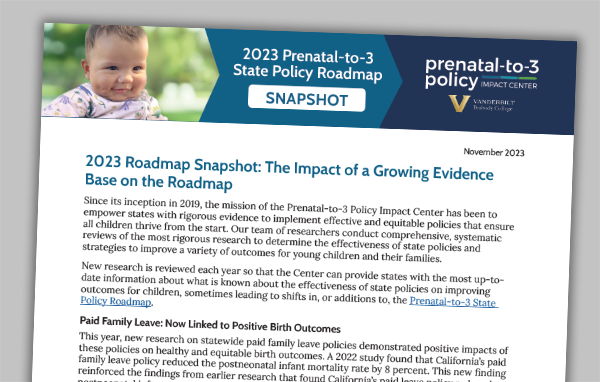This year, the Prenatal-to-3 State Policy Roadmap—a guide for state leaders on the most effective investments to ensure all children thrive from the start, based on the most rigorous evidence available—has expanded. The Roadmap policies evolve each year, with up-to-date information supported by fresh investigation.
In 2023, we integrated compelling new research on paid family leave and comprehensive screening and connection programs, and community-based doulas became the newest Roadmap policy based on a thorough review of the evidence base. State leaders now have access to more rigorous research findings to inform their efforts to implement evidence-based prenatal-to-3 policies.
Read this brief to understand how these changes impacted the Roadmap.
For a deeper dive into the research, explore the full range of evidence reviews in the Prenatal-to-3 Policy Clearinghouse or read the recently updated policy overviews in the Prenatal-to-3 State Policy Roadmap.




